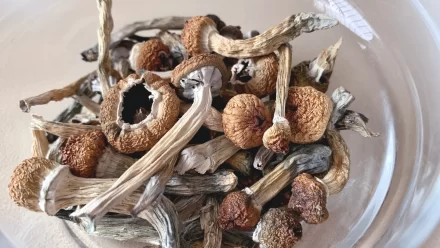
Are you tired of paying high prices for magic mushrooms? If so, you’re not alone. Many people are now buying their psilocybin mushrooms wholesale Shroomiez Ottawa as a cost-effective alternative to purchasing it regularly.
This article will delve into the differences between buying magic mushrooms wholesale and regular, including factors like cost difference, quality assurance, and legality among others.
Let’s dive in!
The Difference Between Buying Wholesale Magic Mushrooms vs Regular
Wholesale magic mushrooms offer a cost advantage and higher quality compared to buying regular quantities.
Cost difference
Buying wholesale magic mushrooms often provides a cost advantage over regular purchases. It’s the simple concept of “buy more, save more”, rooted in economies of scale principle. Wholesale buyers typically purchase directly from growers or suppliers, eliminating additional fees that retailers add on for their overheads and profits.
A single unit price can significantly drop when buying in bulk compared to purchasing smaller quantities at street prices – this could result in saving hundreds or thousands of dollars annually for serious users or entrepreneurs running magic mushroom dispensaries.
Be careful though; while it’s tempting to buy more due to lower costs, one should always consider legal implications and potential risks associated with possession of larger quantities of these mind-altering substances.
Quality difference
Buying wholesale magic mushrooms and regular ones can come with a noticeable difference in quality. When purchasing magic mushrooms in bulk, you often have the advantage of getting them directly from reputable suppliers or growers.
This means that there is more control over the cultivation process, resulting in higher-quality mushrooms with consistent potency and effects. On the other hand, buying regular mushrooms may involve purchasing from various sources without knowing their origin or how they were grown.
This variability can lead to differences in potency and overall quality, making it harder to predict the desired hallucinogenic experience.
When comparing wholesale magic mushrooms to regular ones, it’s important to consider not only the cost difference but also the potential variation in quality. Opting for wholesale allows you to obtain consistently high-grade products that are carefully cultivated and harvested under controlled conditions.
This ensures a more reliable and enjoyable psychedelic experience compared to buying individual doses from unknown sources where there could be inconsistencies in strength and effects.
With wholesale magic mushrooms, you have peace of mind knowing that you are consuming top-notch products produced by trusted suppliers or growers.
In conclusion,
Legality
Magic mushrooms, or psilocybin mushrooms, have a complex legal status in many parts of the world. While some countries and states have decriminalized or legalized the use of magic mushrooms for medicinal purposes, they are still illegal in many places.
It is essential to understand and respect the laws regarding psychedelic substances before purchasing wholesale magic mushrooms or regular ones. Being aware of the legality can help avoid any potential legal complications and ensure a safe experience with these mind-altering substances.
Conclusion
When it comes to buying magic mushrooms, there are some key differences between buying wholesale and buying regular. Wholesale purchases often offer lower costs and higher quality products.
However, legality is a factor to consider as well. So, whether you’re an entrepreneur or someone interested in the mind-expanding properties of psychedelics, understanding these differences will help you make informed choices about your purchase.
FAQs
1. What is the difference between buying wholesale magic mushrooms and regular?
Buying wholesale magic mushrooms typically means purchasing in large quantities from dispensaries, often at a lower cost per unit than regular or single purchases.
2. Are magic truffles and psychedelic mushrooms the same as magic mushrooms?
Yes, Magic Truffles, Psilocybe cubensis and other hallucinogenic fungi are different types of psilocybin-containing mushrooms which are also referred to as “magic” due to their mind-altering properties.
3. How does consumption of alcohol and combination drugs relate with shrooms?
Shrooms can interact with alcohol and other drugs such as LSD or Ketamine creating potentially harmful effects on mind expansion or even leading to drug addiction pathways; hence it’s crucial to seek advice for safe usage.
4. Can consuming magic mushrooms lead to drug addiction?
Magic Mushrooms being psychoactive substances have potential for misuse that could result in psychological dependency requiring support organizations like Zinnia for recovery.
5. What are grey market psilocybin products?
Grey market psilocybin products refer to those not officially licensed but sold within the boundary of legality, such as certain microdosing kits featuring psychedelic substances including Shrooms.


